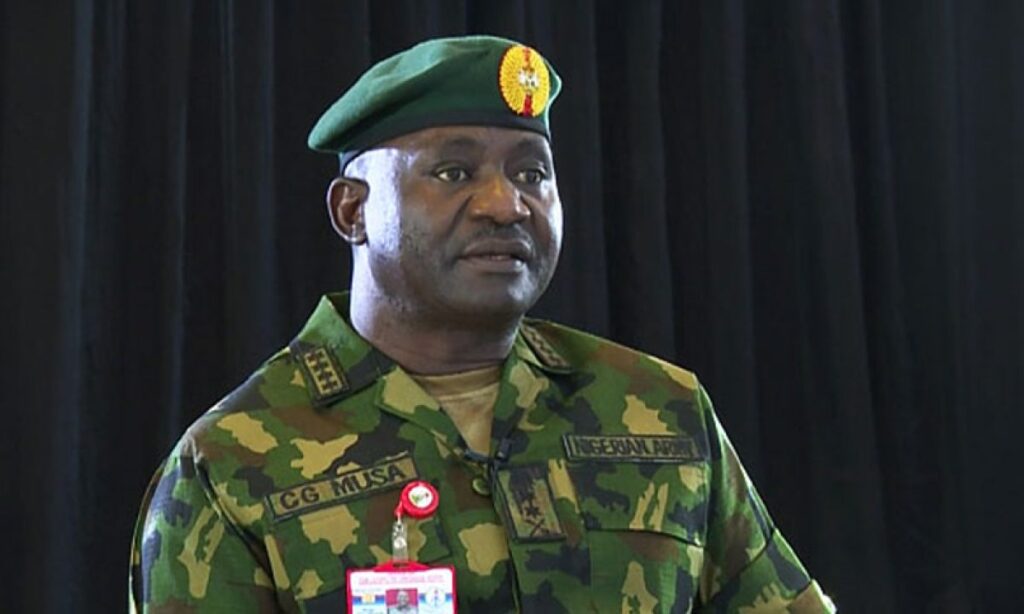Nigeria’s Chief of Defence Staff, General Christopher Musa, has emphasized that the country’s security challenges cannot be addressed by military intervention alone. He called for a holistic, collaborative approach rooted in justice, good governance, and active community participation.
Speaking at the launch of the Presidential Community Engagement Peace Initiative and the North Central Peace Summit in Jos, Plateau State, General Musa urged the federal government to secure Nigeria’s borders and establish a comprehensive national database for citizens and foreigners. He noted that such measures would enhance intelligence gathering and hinder the movement of terrorists and transnational criminals.
“Insecurity cannot be resolved through military force alone,” he said. “It requires a multi-pronged approach that includes good governance, justice, equity, and community involvement. When people feel safe, heard, and treated fairly, society thrives. Without fairness and justice, security efforts will remain limited.”
General Musa also appealed to political leaders to provide strong, responsible leadership, assuring that the military remains committed to supporting all lawful efforts to ensure national security.
Representing Plateau State Governor Caleb Mutfwang, the Commissioner for Local Government and Chieftaincy Affairs, Ephraim Usman, reiterated the state government’s commitment to grassroots peacebuilding, stating that sustainable peace must be locally driven and community-led.
The summit, organized by the Office of the Senior Special Assistant to the President on Community Engagement (North Central), Mrs. Abiodun Essiet, aimed to foster unity and proactive conflict resolution strategies in the region. Essiet underscored that peace is fundamental to development and encouraged residents to embrace Nigeria’s ethnic and cultural diversity as a strength.
Also speaking at the event, Senator Simon Lalong, representing Plateau South in the National Assembly, called on all stakeholders—government bodies, traditional rulers, civil society, and citizens—to join forces in addressing the insecurity plaguing the region.
The summit drew participation from traditional rulers, civil society groups, and community leaders across the North Central zone, reflecting a unified commitment to building lasting peace.
